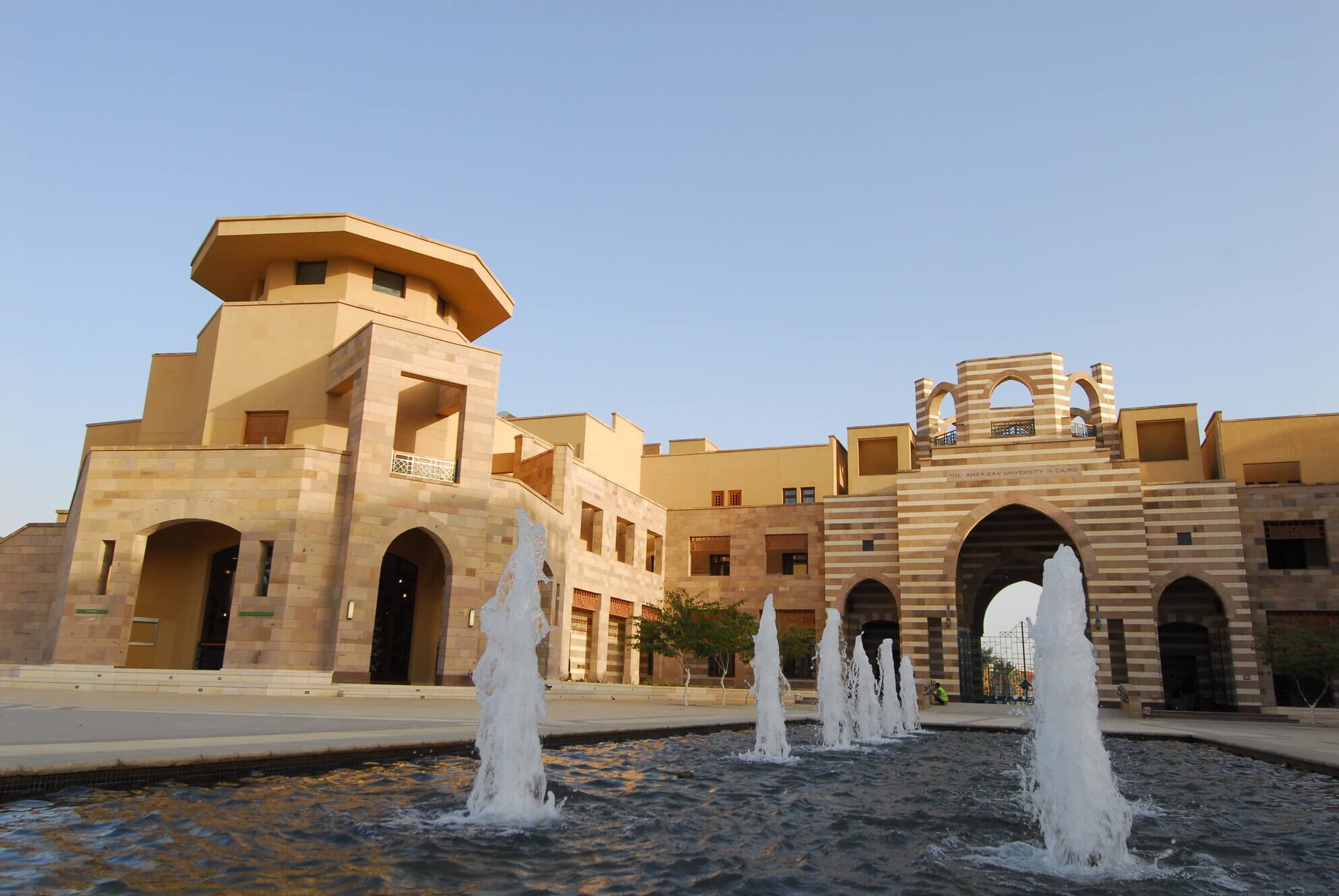
Scientific Success: Actuarial Science, Biology Fill Niche
AUC's undergraduate actuarial science and biology programs recently received specialized accreditation by the Applied and Natural Science Accreditation Commission of ABET for a six-year duration, the maximum period for accreditation.
This milestone accomplishment is an official recognition that both programs meet the rigorous standards established by ABET and the criteria for accreditation: students, program educational objectives, student outcomes, continuous improvement, curriculum, faculty, facilities and institutional support.
According to Hassan El-Fawal, dean of the School of Sciences and Engineering, as a non-domestic American institution of higher education, it is essential that AUC's programs exceed international standards.
"The recent ABET accreditation of our actuarial science and biology programs is an impartial testimony to the quality of our curriculum and the world-class faculty that provides it," El-Fawal said. "The accreditation of our science and engineering programs acknowledges our mission's success and the dedication our faculty brings to the role of educator."
Student Success
Ali Hadi, distinguished University professor and chair of the Department of Mathematics and Actuarial Science, founded the actuarial science program in 2004 and served as its director until 2012. “As a founder of the program, I am delighted by ABET’s accreditation,” said Hadi.
The number of certified actuaries in Egypt is "notoriously low," Hadi noted, whereas the demand for actuaries is quite high. One of the objectives of the program, which was the first in Egypt to offer a four-year Bachelor of Science degree in actuarial science, is to reduce the large gap between supply and demand on actuaries in Egypt.
Hadi explained that the actuarial science program, which cuts between the School of Sciences and Engineering and the School of Business, prepares students for careers as actuaries who provide risk management expertise to insurance companies, consultancies, government, regulatory bodies and a range of investment and banking institutions.
Sarah Mazhar ‘09, a graduate of the actuarial science program, has made history by becoming the first female fellow actuary in Egypt. Mazhar is currently working as the insurance risk manager at AXA Egypt. Previously, she was seconded for six months to Legal and General in the united Kingdom, where she worked for different actuarial teams.
“AUC gave me the tools that helped accelerate my learning through actuarial exams and learning on the job,” said Mazhar. “At AUC, we pride ourselves that we learned how to learn. I believe that we stop living the moment we stop learning, and, therefore, the ability to learn is a skill that not only helped me, but continues to contribute to my development on a daily basis.”
Rania Siam, professor and former chair of the Department of Biology, noted that the biology program exposes students to the contemporary and broad biological science field. Additionally, all biology students are involved in a research project, under the supervision of a faculty member. The students are expected to design, execute, analyze, interpret their findings and present their projects in written and oral form.
“Our program provides hands-on experimentations in the diverse biological science field. ... This prepares our students to pursue cutting-edge research," said Siam. "In fact, a high percentage of our graduates are pursuing graduate education attop universities in Europe and North America.”
Deena Gendoo ‘06, a graduate of the Department of Biology and a current postdoctoral research fellow in bioinformatics and computational biology as part of the Princess Margaret Cancer Centre and the University of Toronto, said she frequently visits Cairo and makes it a point to pass by the AUC biology and computer science departments every chance she gets.
“Bioinformatics is a multidisciplinary field that combines both biology and computer science," said Gendoo. "My studies at AUC gave me a solid understanding of these subjects and helped define my career path today."
Getting the Job Done
According to Hadi, the success of the actuarial science program is due to the hard work of many of the faculty members in the department, especially Zeinab Amin, director of the actuarial science program since 2012 and associate dean of undergraduate studies in the School of Sciences and Engineering.
As director, Amin headed the committee responsible for developing the self-study of the actuarial science program and was responsible for reviewing the biology program self-study. She was also the accreditation coordinator for both programs and the primary point of contact for the ABET team. “Embarking on the accreditation process was a challenging, yet very rewarding task,” recalled Amin. “The process of reflection was a great opportunity for our department to assess the strengths of the program.”
The actuarial program is also accredited in Egypt by the Supreme Council of Universities until 2020 and is classified by the American Society of Actuaries as an advanced undergraduate actuarial science program.
Arthur Bos, associate professor and chair of the Department of Biology, said when he found out the news, he and his colleagues were conducting research outside of AUC and exchanged celebratory emails with each other.
“It was an amazing teamwork experience for the [biology] department,” said Bos. “But it needs to be said that a few faculty members have been extraordinarily committed and took the lead in organizing and scheduling the entire process.”

